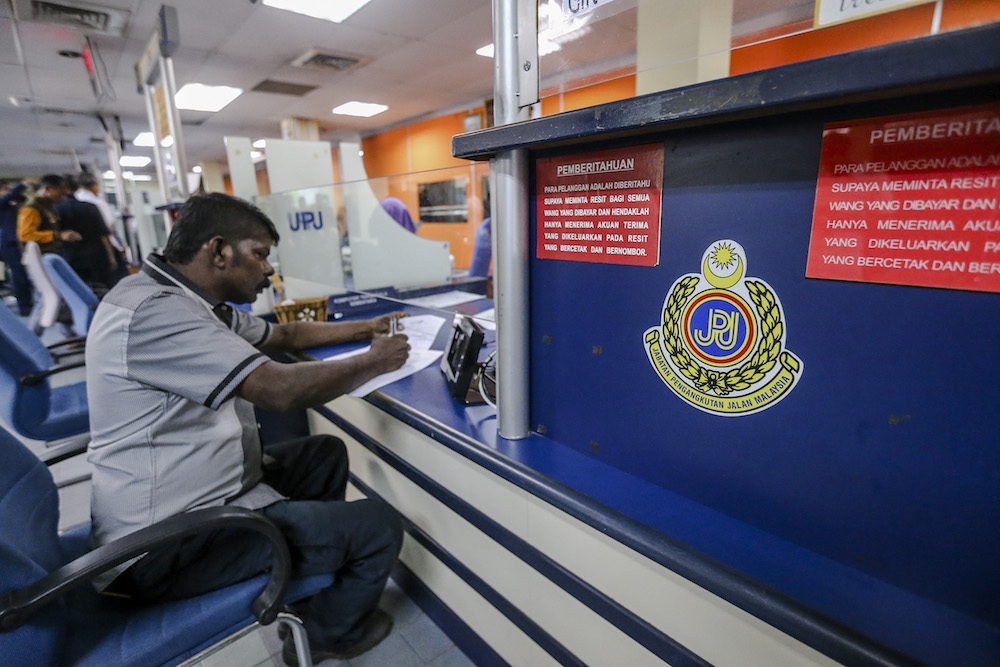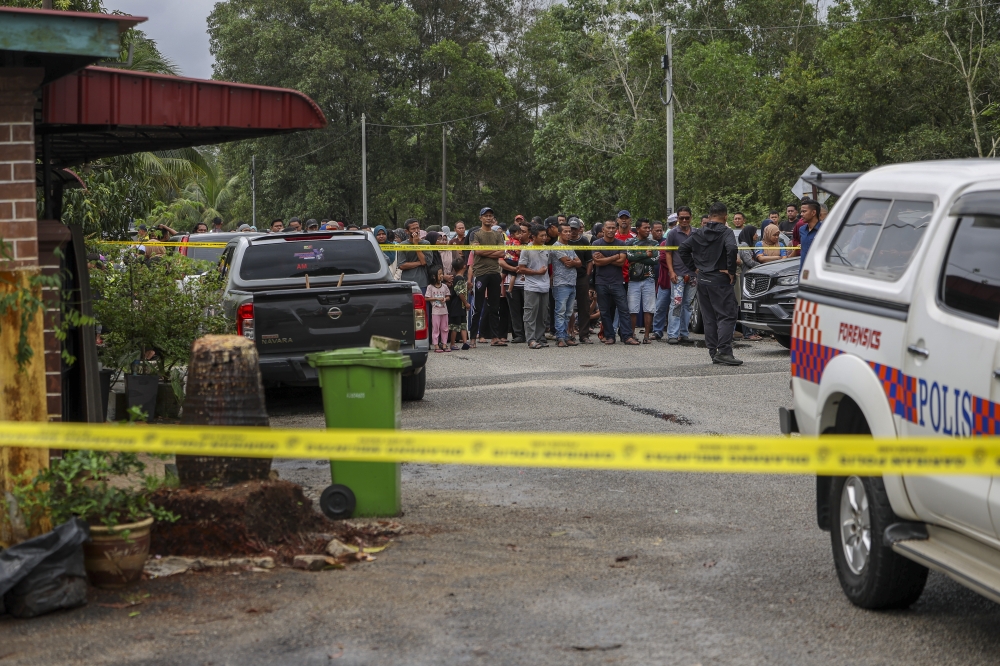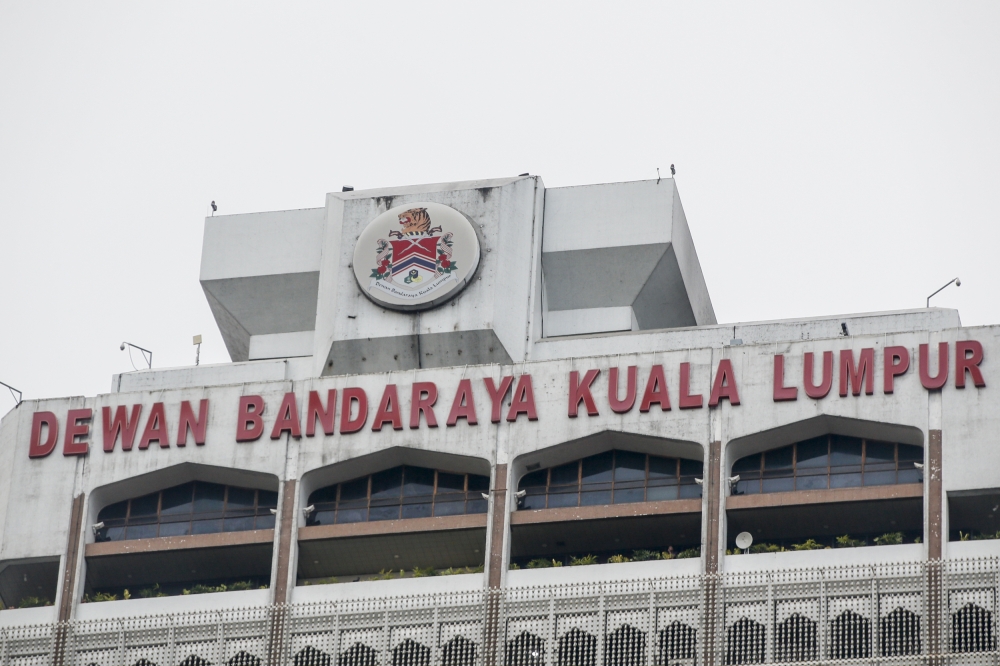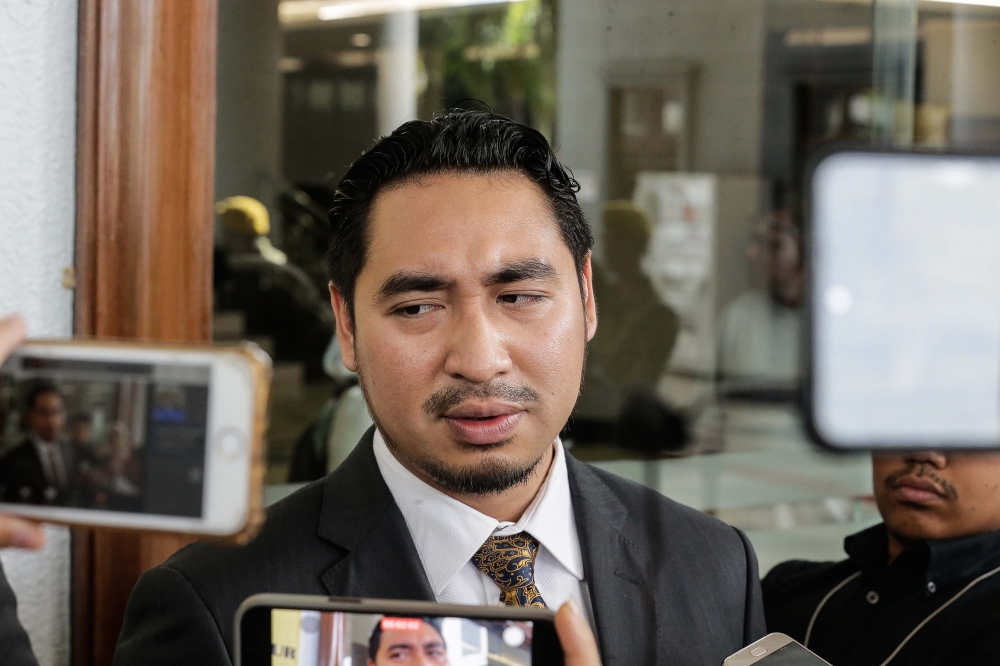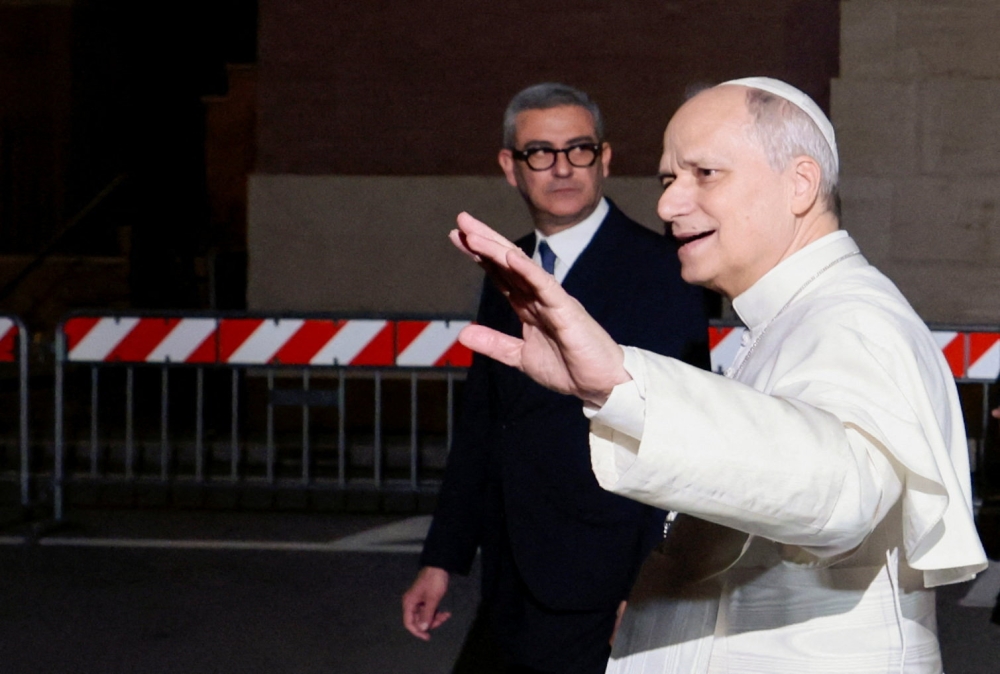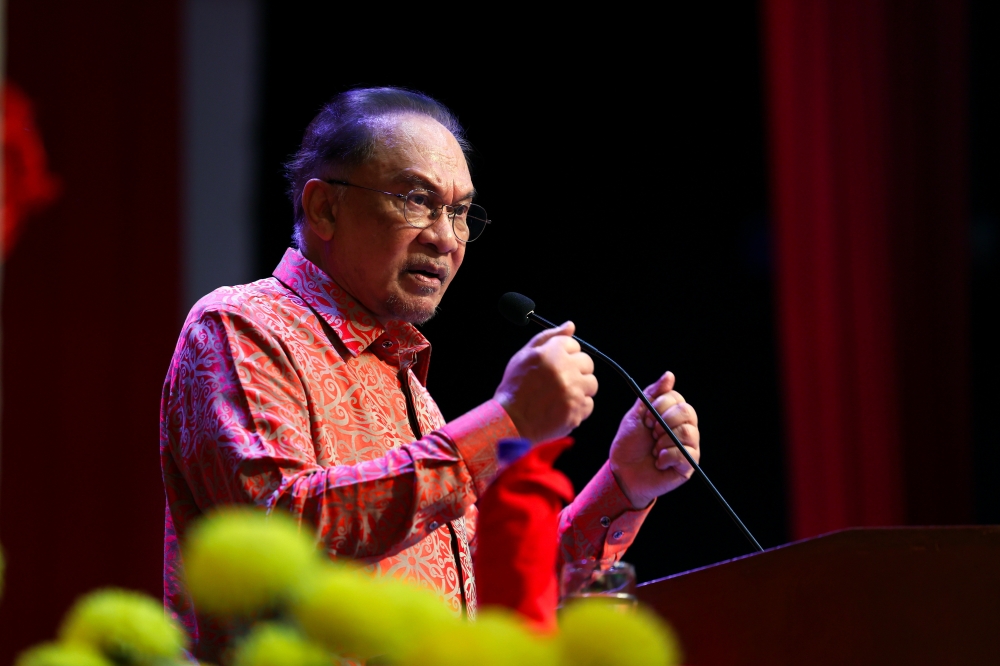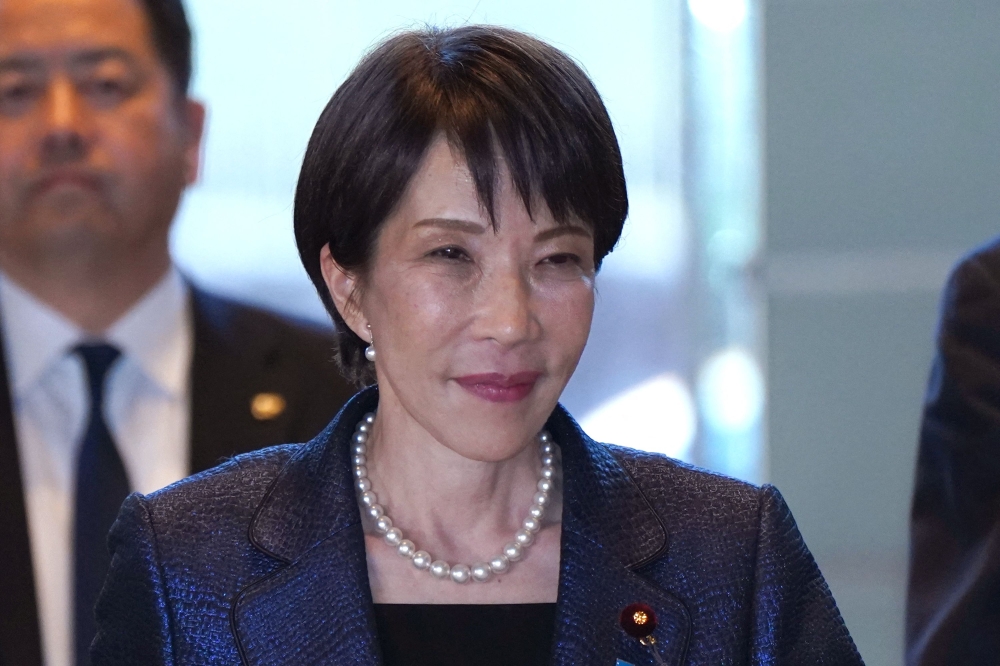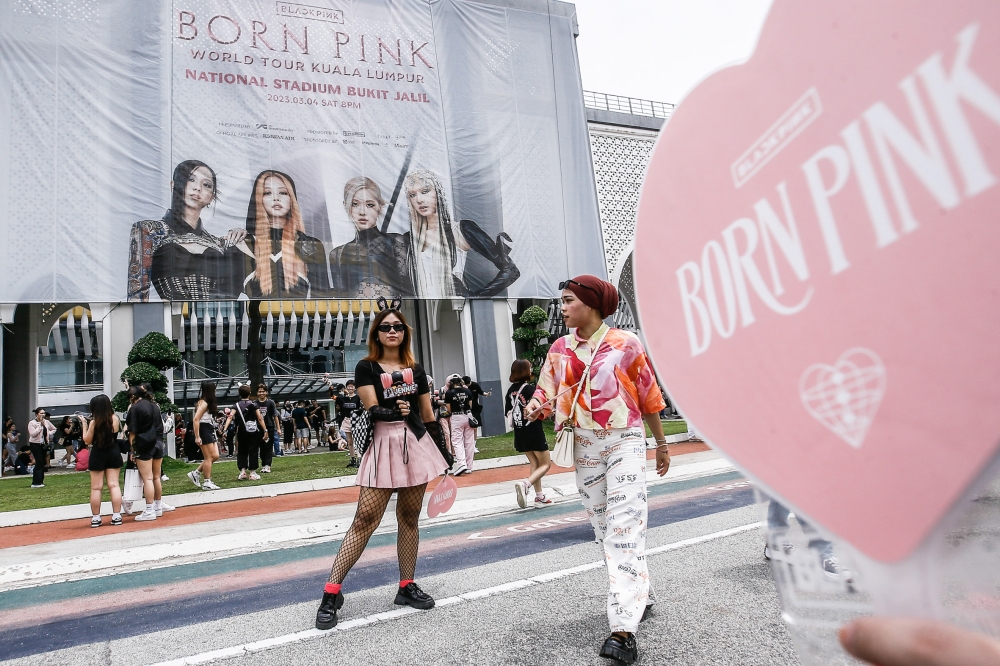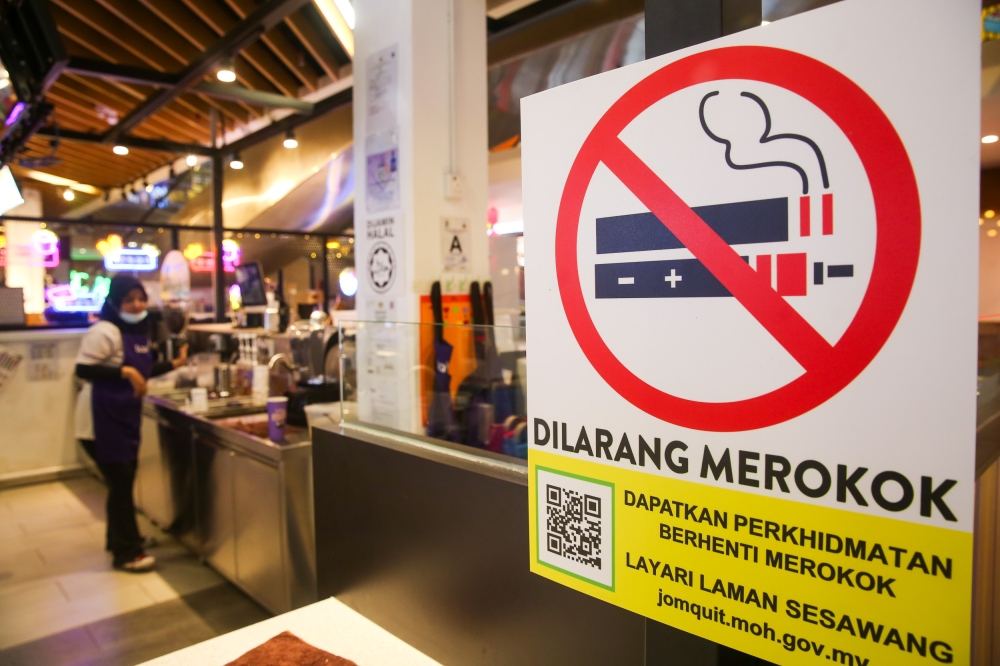KUALA LUMPUR, Dec 6 — Whenever concerts featuring international pop stars are announced in Malaysia, tickets are often sold out to enthusiastic Malaysian fans — with the most recent being the record-breaking 75,000 tickets for British rock band Coldplay’s single show last month — but such events also sometimes must brave pressure from groups or political parties for the government to cancel them.
But beyond the political debate of whether Malaysia should host such concerts, when it comes down to the financial impact, the numbers are clear: Yes, concerts do help boost business and drive up demand for rooms at hotels.
In numbers Malay Mail obtained from data analytics firm ADATA Sdn Bhd, an analysis of monthly figures gathered directly from a sample of 65 hotels in Kuala Lumpur with between three- and five-star ratings indicated an observable correlation between when major concerts are held and the occupancy rates at these businesses.
“A positive impact on occupancy is clearly seen on all major stars’ concert events,” ADATA told Malay Mail.
ADATA said it focused only on popular concerts in Kuala Lumpur and included all major concerts with popular mainstream artistes to its knowledge in its chart, while leaving out other smaller local artistes’ concerts or less mainstream international artistes performing at small venues.
“We build the chart independently from the concert dates, meaning we can’t say for sure the high occupancy is due to the concerts but after combining the two datasets, the observations are as provided in the chart,” the company told Malay Mail.
While noting that there are multiple factors that could affect hotel occupancy rates and it may be difficult to determine the impact of a particular event on demand for hotel rooms, ADATA said its year-on-year comparison of these KL hotels’ average occupancy rates in 2023 to 2022 figures would even out annual factors such as school holidays. This would then enable ADATA to see if concerts had benefited hotels in terms of more hotel rooms being taken up.
Here’s what ADATA found, when it compared average occupancy rates for the 65 hotels during the January to October 2023 period and the same 10-month period in 2022:
While the 65 hotels in Kuala Lumpur in this sample generally had a higher monthly average occupancy rate (AOR) throughout the January to October period in 2023 as compared to 2022, the months of February and March saw the biggest growth in AOR in 2023 as compared to 2022.
ADATA’s chart highlighted that February 2023 was the month when Irish pop group Westlife’s concert was held here, while highlighting the concerts or shows here in March 2023 by British singer Sting, Canadian rock singer Bryan Adams, Canadian pop punk band Simple Plan, Korean pop band Blackpink, American pop rock band One Republic, Malaysian pop singer Datuk Sheila Majid.
Just how much more did average occupancy rates shoot up during these two months with star-studded performances?
In the month of February 2023 when there was a Westlife concert, the average occupancy rates of 65 hotels in KL for that month increased by 87.9 per cent year-on-year when compared to the average occupancy rates in Feb 2022. This year-on-year average figure evens out the effect of other seasonal or annual factors like school holidays.
In order to determine if the 87.9 per cent year-on-year difference or growth between February 2023 and February 2022 was “just general demand growth for the year” or if it was “exceptional” growth that could be linked to events such as concerts, ADATA compared the 87.9 per cent year-on-year growth in February to the baseline figure of 25.7 per cent (which is the difference between the average in AOR for the entire 10-month period in 2023 against 2022, namely 56.7 per cent and 45.1 per cent).
Compared to the baseline, the average occupancy rates in February 2023 would reflect a figure of 242 per cent, which enabled ADATA to provide the observation that concerts positively benefited hotels in Kuala Lumpur.
“Yes, 87.9 per cent is February 2023 vs 2022. If you look at the entire period, the average month in 2023 vs month in 2022 is 25.7 per cent, so February is exceptional ... and 242 per cent more is how exceptional it is,” the company said.
Similarly, March 2023 — which saw multiple concerts — recorded a growth in AOR rates by 60.1 per cent as compared to March 2022.
After comparing this 60.1 per cent growth in March 2023 to the same 10-month baseline of 25.7 per cent, Kuala Lumpur hotels were shown to have recorded an exceptional growth of 134 per cent in that particular month where multiple concerts had took place, which makes clear that the March 2023 figures are not due to general demand but are driven by events.
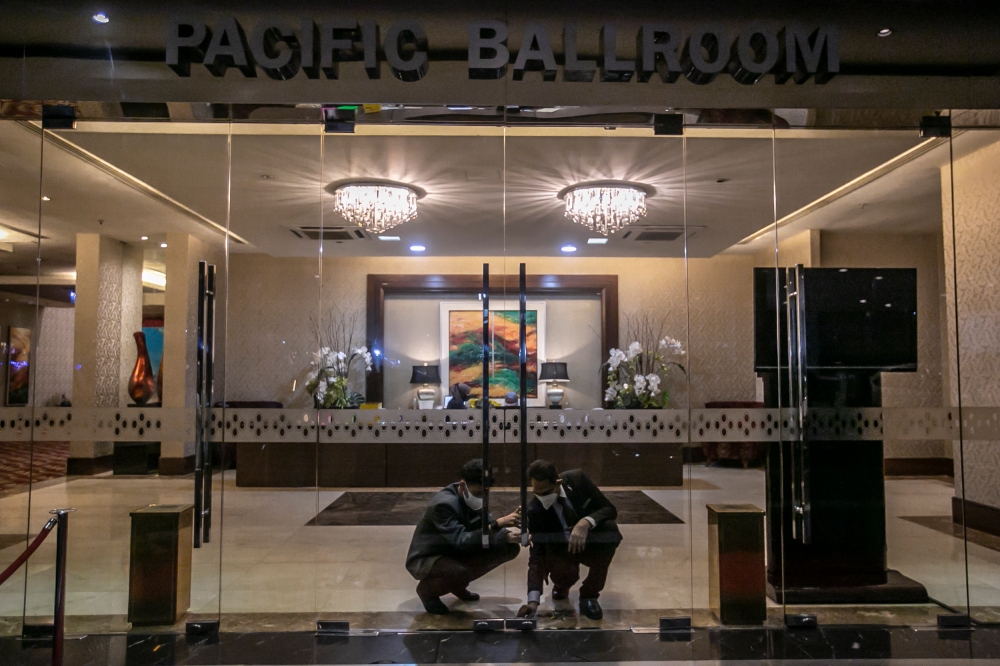
When summing up the entire January to October period in 2023, ADATA said: “Occupancy for months in 2023 with major concert events showed an average of 188% higher monthly year-on-year growth compared to 10 months average”. The 188 per cent figure is the average of both the exceptional figures of 242 per cent in February 2023 and 87.9 per cent in March 2023.
While August 2023 too saw Hong Kong pop singer Jacky Cheung performing in Malaysia, ADATA did not include this month’s figures in summing up the entire 10-month period. This was because of American singer Billie Eilish’s concert held in August 2022, with ADATA saying that the impact of the concerts held in August in both years may cancel out their impact on hotel occupancy rates.
“From our observations, the major concerts for 2023 in the first nine months only on the three months namely February, March and August. We can’t have clarity on August 2023 because August 2022 also had a concert so the impact might even out.
“Thus our focus is on February and March where there is no concert or major events in February and March 2022, other than the EPF withdrawal announcement in March 2022. As such, our deduction of the impact might even be larger without the EPF announcement, because without it, the 2022 occupancy might be slightly reduced causing a much larger March 2023 year-on-year growth,” ADATA said.
(Previously in March 2022, then prime minister Datuk Seri Ismail Sabri Yaakob had announced that Employees Provident Fund (EPF) contributors would be allowed to withdraw up to RM10,000 from their retirement savings — the fourth such special withdrawal scheme for those financially affected by the Covid-19. The EPF said in April 2022 that it found those who applied were for reasons such as reduced income or for essential spending and to settle debts, but 19 per cent wanted to withdraw up to RM10,000 for other purposes like non-essential spending, investment and for their children’s education.)

ADATA’s findings on more people staying at hotels at the same period as concerts are held matches what industry players told Malay Mail, with hotel operators and hotel associations saying that concerts would not only attract Malaysian fans that are willing to travel from other states and would need hotel accommodation, but would also draw in international fans from abroad.
Malaysian Association of Hotels (MAH) CEO Isaac Mohan Raj told Malay Mail that concerts bring “immense economic benefits” to Malaysia, and local hotels enjoy increased bookings during periods that would otherwise usually be considered “low seasons” or with less guests.
Asked about the economic impact of major concerts on hotels in Kuala Lumpur, ADATA said it does not have other data such as spending and ticket revenues, as it only tracks the performance of hotels.
But ADATA observed that hotels did not increase the prices for their rooms during the periods where major concerts were held, saying: “We do have the average daily rates (ADR) representing the hotel room pricing for the same hotels and period but from what we see, no meaningful observations as in there were no spikes in prices during the period.
“This is constant with our observations for 2023 as we are still seeing oversupply compared to the demand level in the market today, thus causing the hotels not able to price higher even with higher demand as the demand is not causing a shortage in rooms,” ADATA said.
Sri Ganesh Michiel, president of the Malaysia Budget & Business Hotel Association (MyBHA), told Malay Mail that concerts significantly increased patronage at nearby hotels, but that higher occupancy rates may not necessarily translate to significant growth in profits for hotels.
This is because of the ephemeral nature of concerts that may only be for one to a few days, and as hotel rooms sold online through websites such as Agoda and Booking.com are at a very minimal price and that impact on hotels’ profits is still low no matter how many rooms are booked, he said.
ADATA, which obtains data directly from individual hotels, is the official data platform for the Malaysian Association of Hotels (MAH) and the Malaysian Association of Hotel Owners (MAHO) which covers more than 1,000 hotels in Malaysia.
According to ADATA, it is the largest data provider for Malaysia’s hotels’ performance and uses big data analytics and artificial intelligence to support the hotel industry and its stakeholders. It supplies data and analytics to MAH, MAHO, and other institutions including government agencies and ministries.

